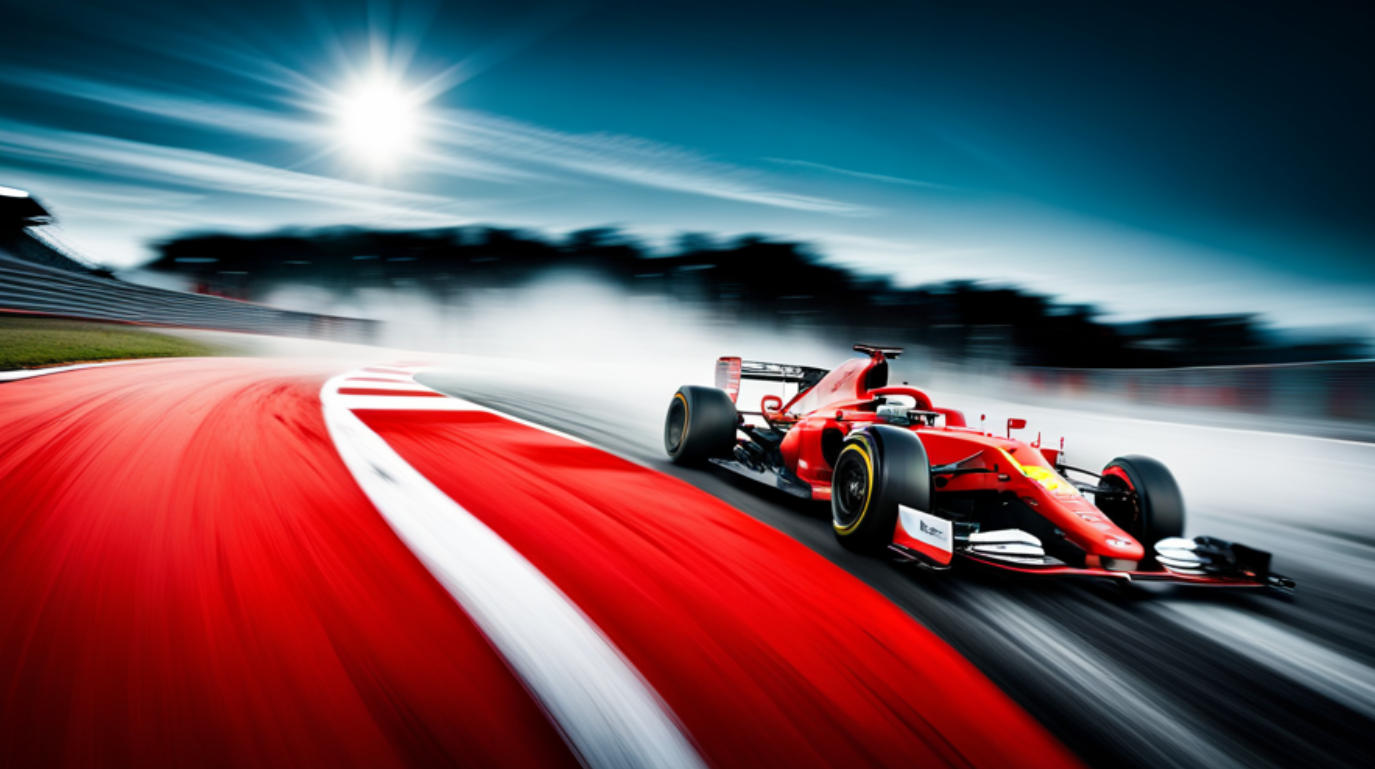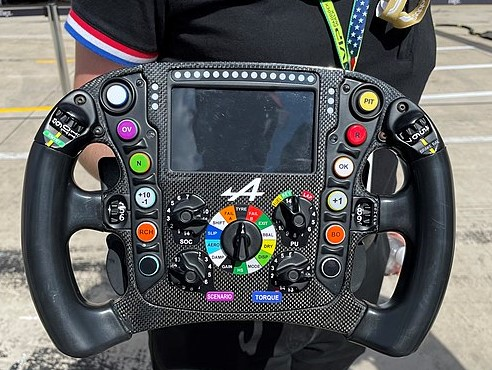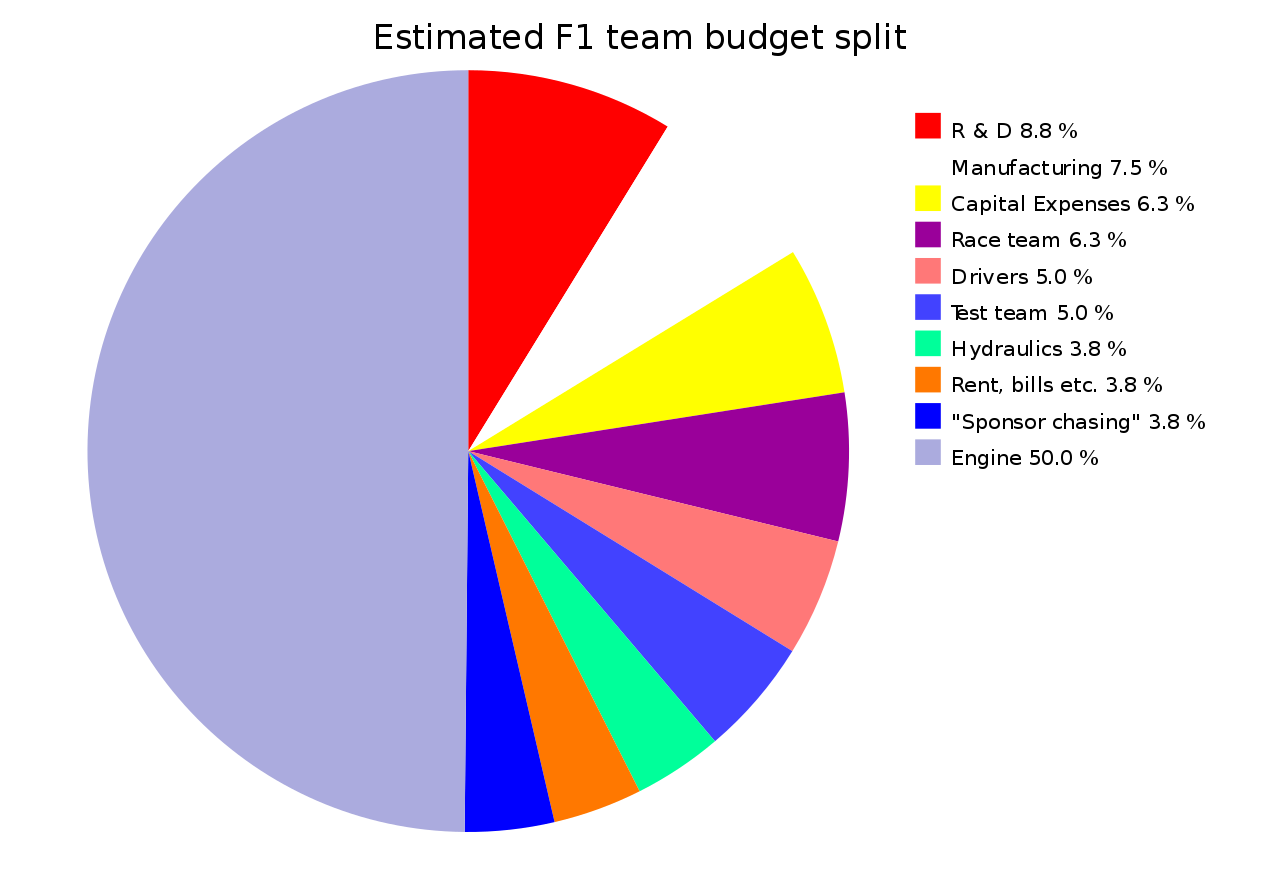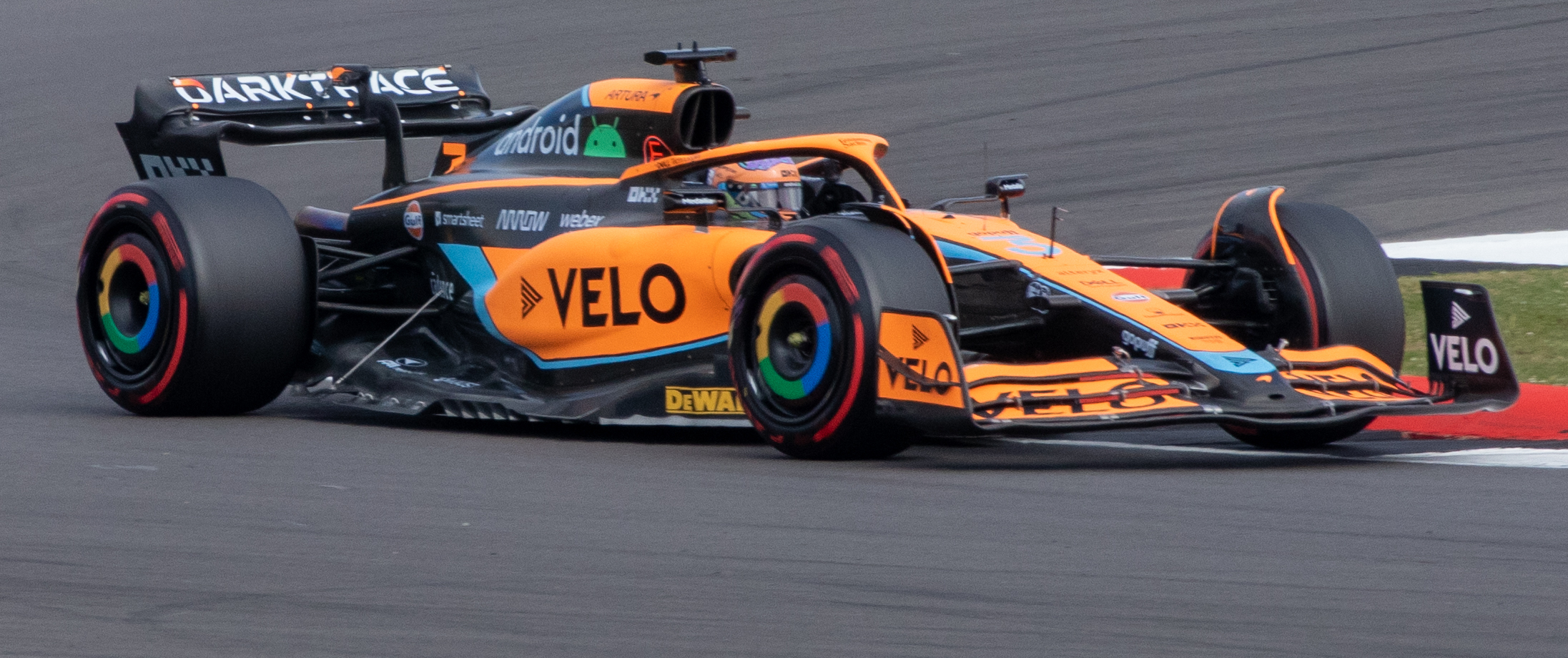How much does a Formula 1 cost?
How much does a Formula 1 Car cost? If you’re here fo the “too long, didn’t read” version, an actual Formula 1 car may cost around $16 Million. That’s the ballpark figure that’s needed to put together a Formula 1 single-seater if we consider the cost of all its components. Of course, that’s if we don’t take into consideration other factors, such as R&D, logistics and tech that’s needed to produce these absolutely bespoke elements. For those of you willing to buy an authentic Formula 1 car, they’re quite pricey but can be purchased on the f1authentics.com website. Here, for example, you can buy the 2024 Stake F1® Team KICK Sauber C44 Official Show Car for €297.000 or the 2020 Sergio Pérez BWT Racing Point F1 Team Race-winning RP20 Official Show Car for “just” €137.000. These are show cars, of course (no engine, no transmission), but you weren’t actually thinking of driving these, were you?
Got time? Go on then
The world of Formula 1 racing captivates millions of fans worldwide with its cutting-edge technology, extreme speeds, and fierce competition. One question that frequently arises among enthusiasts is, “How much does an F1 car cost?” In this comprehensive blog post, we will delve into the fascinating and intricate world of F1 cars, exploring their costs, components, and performance factors that make them some of the most advanced racing machines on the planet. An exciting journey that covers everything from the steering wheel to the engine and the cost cap in Formula 1. So, strap into the driver’s seat and prepare to be amazed!

The Actual Cost of an F1 Car
Determining the exact price of an F1 car can be extremely difficult, as various factors contribute to their overall cost. On average, an F1 car is estimated to cost between $12 and $20 million. However, this figure accounts only for the car’s initial construction; additional amount such as research and development expenses, repair costs, and transportation costs can further increase the total cost of an F1 car.
It’s important to note that the actual cost of an F1 car can vary significantly depending on the team and its resources. Smaller teams may have to be more cost-effective in their approach, while top-tier teams can invest more heavily in their cars.
In an effort to level the playing field and help smaller teams achieve more success, Formula 1’s governing body has introduced a cost cap. This cap limits the amount teams can spend on their cars and other aspects of their operations, making the sport more competitive and financially sustainable.

Components and Performance Factors of an F1 Car
F1 cars are carefully designed and meticulously engineered to extract the maximum performance possible. Every component, from the front to the rear wing, to the motor generator units and the fuel tank, plays a crucial role in shaping the car performance factors
- Front and Rear Wings: The front wing and the rear wing play a critical role in generating downforce, which helps keep the car planted on the track and improves cornering performance. These wings are usually made from carbon fibre mats and can be adjusted to optimize the car’s aerodynamic balance.
- Engine: The heart of an F1 car is its hybrid power unit, which combines a 1.6-liter V6 turbocharged engine with two motor generator units – the Motor Generator Unit – Kinetic (MGU-K) and the Motor Generator Unit – Heat (MGU-H). This innovative setup not only delivers incredible power but also improves fuel efficiency.
- Steering Wheel: The steering wheel in an F1 car is an incredibly complex and expensive component, featuring over 20 buttons, dials, and switches that enable the driver to control various aspects of the car’s performance, including the engine mapping, brake balance, and Energy Recovery System (ERS).
- Gearbox: F1 cars are equipped with eight forward gears, allowing them to achieve their impressive top speeds. The gearbox is designed to be lightweight and robust, ensuring that it can withstand the stresses and strains of a Grand Prix weekend.
- Carbon Fibre Monocoque: The chassis, or monocoque, is a single structure that forms the car’s cockpit and houses the driver’s seat, fuel cell, and control electronics. It is made from layers of carbon fibre, providing a lightweight yet incredibly strong and virtually indestructible frame that offers excellent protection for the driver.
- Brakes: The brakes on an F1 car are made from advanced materials, such as carbon-ceramic discs and titanium calipers, to provide outstanding stopping power while minimizing weight. These high-performance brake systems can generate temperatures in excess of 1,800°F (1,000°C) during heavy braking, requiring specialized cooling systems to prevent overheating.
- Suspension: An F1 car’s suspension system is engineered to balance performance, handling, and ride quality. The intricate component design includes components like wheel bearings, titanium structure, and sophisticated dampers that help maintain optimum tire contact with the track and deliver precise handling characteristics.
- Energy Recovery System (ERS): The ERS in an F1 car comprises six components, including the MGU-K, MGU-H, and energy store. This system captures waste energy from the engine and braking, converting it into electrical energy that can be used to boost power and improve fuel efficiency. The ERS plays a significant role in optimizing an F1 car’s performance, especially during overtaking maneuvers or defending against other cars.
- Fuel System: The fuel system in an F1 car is designed to ensure that fuel drains consistently and uniformly from the fuel tank to the engine, even under extreme G-forces. This system includes debris filters to prevent debris flying around the tank from reaching the engine and causing damage.
- Electronics: Formula 1 cars are equipped with numerous sensors and control systems that monitor and manage various aspects of the car’s performance. These systems include the Electronic Control Unit (ECU), telemetry systems, and chassis loom, all of which contribute to the high cost of an F1 car’s electronics.

Understanding the Total Cost of an F1 Car
When considering the total cost of an F1 car, it’s essential to factor in not only the initial construction costs but also the ongoing expenses associated with research and development, repairs, and transportation. Furthermore, the costs of employing a skilled team of engineers, mechanics, and other support staff must be considered.
Formula 1 teams are continually investing in cutting-edge technology and innovative designs to improve their cars’ performance, pushing the boundaries of what’s possible in automotive engineering. As a result, the cost of an F1 car can be significantly higher than that of other vehicles on the market, even the most expensive luxury or sports cars.
It’s also important to note that higher logistics costs, incurred due to the global nature of the sport, can further increase the total cost of an F1 car. Teams must transport their cars, equipment, and personnel to various Grand Prix locations around the world, incurring significant expenses in the process.
The F1 Car Cost in the Context of the World Championship
In the context of the Formula 1 World Championship, the cost of an F1 car is just one of the many factors that contribute to a team’s overall competitiveness. While it’s true that better founded Teams tend to produce cars that are more advanced and capable of achieving better results, it’s essential to recognize that other factors, such as driver skill, team strategy, and even luck, can also play a crucial role in determining the outcome of a race.
With the introduction of the cost cap, Formula 1 is taking steps to create a more level playing field, allowing smaller teams to be more competitive and ensuring that the sport remains exciting and unpredictable.
As we dive deeper into the costs of various components of an F1 car, it’s essential to remember that these figures are approximate and can vary depending on the team, suppliers, and specific technologies used. Here’s a breakdown of some of the major components and their estimated costs:
- Chassis / Monocoque: $1,000,000 – $2,000,000 The carbon fibre monocoque is the core structure of the car, housing the driver’s cockpit, fuel tank, and control electronics. Its construction requires precision engineering and high-quality materials.
- Engine / Power Unit: $7,000,000 – $10,000,000 The hybrid power unit, which combines a 1.6-liter V6 turbocharged engine with the MGU-K and MGU-H, is one of the most expensive components of an F1 car.
- Gearbox: $500,000 – $1,000,000 The eight-speed gearbox is engineered to be lightweight, robust, and capable of handling the immense power generated by the hybrid power unit.
- Suspension: $300,000 – $500,000 The suspension system balances performance, handling, and ride quality while withstanding the extreme forces experienced during a race.
- Brakes: $200,000 – $350,000 High-performance carbon-ceramic discs and titanium calipers ensure exceptional stopping power while minimizing weight.
- Aerodynamics (Front and Rear Wings): $150,000 – $300,000 Both the front and rear wings are essential for generating downforce, optimizing the car’s aerodynamic balance, and improving cornering performance.
- Steering Wheel: $50,000 – $100,000 The complex F1 steering wheel features a multitude of buttons, dials, and switches that allow the driver to control various aspects of the car’s performance.
- Electronics (ECU, Telemetry, and Sensors): $300,000 – $500,000 The electronic systems in an F1 car monitor and manage the car’s performance, including the ERS, engine, gearbox, and other critical systems.
- Energy Recovery System (ERS): $1,000,000 – $2,000,000 The ERS captures waste energy from the engine and braking, converting it into electrical energy that can be used to boost power and improve fuel efficiency.
- Tires: $1,500 – $2,000 per set Formula 1 teams use multiple sets of tires during a race weekend, with each set designed for specific track conditions and performance requirements.

Please note that these costs represent only a portion of the total expense of constructing and maintaining an F1 car. Other expenses, such as research and development, transportation, and personnel salaries and other components must also be factored into the overall cost.
In Conclusion
Formula 1 cars are the pinnacle of automotive engineering, showcasing what is possible when cutting-edge technology, innovative design, and a relentless pursuit of performance are combined. While the costs associated with these vehicles can be staggering, they represent the price of excellence in a sport that demands nothing less than the very best. The next time you watch an F1 race, take a moment to appreciate the incredible investment, both financial and technological, that goes into crafting these awe-inspiring machines.
list of the sources
- F1technical.net Link: https://www.f1technical.net/
- Forbes Link: https://www.forbes.com/
- Motorsport.com Link: https://www.motorsport.com/
- Autosport.com Link: https://www.autosport.com/
- RaceFans.net Link: https://www.racefans.net/
These sources provide a solid foundation for further exploration into the world of Formula 1, including car costs, team budgets, and the sport’s technical aspects.
Pictures from the top Alpine F1's steering wheel shown to spectators by a technician at the Circuit of The Americas on the first practice day of the 2021 United States Grand Prix AuthorDeclan M Martin - Public Domain F1 team budget split This work has been released into the public domain by its author, SebDE at the Wikipedia project. This applies worldwide. a Description IMG_6270Date1 J SourceIMG_6270 AuthorJen Ross This file is licensed under the Creative Commons Attribution 2.0 Generic license.















